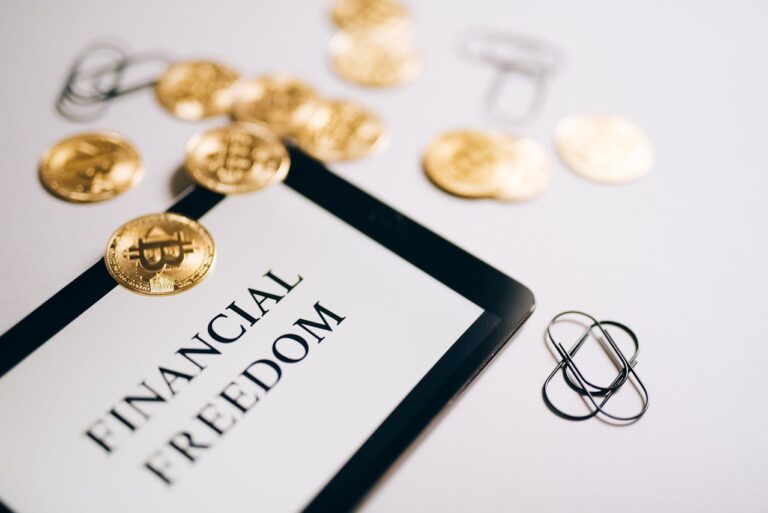Write Us: hello@ali5.org
Why Most People Stay Broke: The Psychology Behind Poor Money Habits
Stuck in a cycle of being broke? Discover the real psychological habits that sabotage financial success, and how to break free.

Let’s be honest, most people don’t stay broke because they never make money. They stay broke because they never learn how to keep it, grow it, or respect it. The paycheck comes in and almost instantly flies back out. Rent, groceries, new shoes, a random delivery from an Instagram ad, and suddenly, it’s the 20th of the month and you’re counting down to payday again.
Sound familiar?
This isn’t just about budgeting. It’s deeper than that. If you’ve been stuck in a cycle of financial frustration, it might be time to look inward. Because staying broke isn’t always about circumstances. It’s often about psychology, your beliefs, your habits, your emotional relationship with money.
Let’s break this down and talk about what’s really going on.
1. The Comfort of Familiar Struggle
Humans are creatures of habit. And for many, being broke becomes familiar, weirdly comfortable even. If you grew up watching your parents live paycheck to paycheck, that pattern gets coded into your default behavior.
Subconsciously, you may associate having more money with risk, responsibility, or even guilt. So even when you do make progress financially, you sabotage it. Overspending, not saving, ignoring debt, it’s your brain pulling you back into the struggle it understands best.
Fix It:
You’ve got to rewire how you think about wealth. Start by asking:
-
Do I believe I deserve abundance?
-
Am I afraid of being seen differently if I become wealthy?
-
What did I learn about money growing up?
Awareness is the first crack in the wall.
2. Impulse Spending as Emotional Relief
We live in an instant gratification economy. You feel anxious? You scroll and buy. Bored? Add to cart. Sad? Order food.
Spending becomes a coping mechanism, a temporary relief that leads to long-term regret.
The hit of dopamine from buying something can feel like a quick win. But if you keep doing it, it’s like bailing water from a sinking boat while drilling new holes in the bottom.
Fix It:
Learn to separate emotional needs from financial decisions. Before any unplanned purchase, ask yourself:
-
Am I buying this because I need it, or because I feel something?
-
Can I wait 48 hours and still feel the same way?
Often, the urge fades. And that’s money saved.
3. No System, Just Vibes
Here’s the thing: managing money requires a plan. But many people operate on vibes alone. They don’t track spending. They don’t set budgets. They think saving means “whatever is left over at the end of the month,” which is usually nothing.
If you don’t control your money, your money will absolutely control you.
Fix It:
Build a simple system:
-
Track your spending weekly (apps like YNAB, Mint, or even a spreadsheet).
-
Use the 50/30/20 rule: 50% needs, 30% wants, 20% savings/debt repayment.
-
Automate savings. Even 5% is better than 0%.
Discipline sounds boring until you see your savings account go up every month. That’s freedom.
4. Scarcity Mindset Keeps You Playing Small
The scarcity mindset is the belief that there’s never enough. You think:
-
“I’ll never make enough to save.”
-
“People like me aren’t meant to be rich.”
-
“I’d better spend this while I have it.”
This mentality keeps you stuck. You don’t invest. You don’t learn. You don’t even try to grow financially, because deep down, you’ve accepted a ceiling that doesn’t actually exist.
Fix It:
Flip the script. Instead of asking “Can I afford this?”, ask “How can I afford this?”
Abundance starts with curiosity and creativity, not resignation.
Feed your brain with better input, read books like Rich Dad Poor Dad, listen to finance podcasts, and follow creators who break it down in simple language. Upgrade your environment, and your beliefs will follow.
5. Fear of Looking “Cheap”
A lot of people stay broke trying to look rich. New clothes, flashy phones, dinners out, keeping up with friends who don’t think twice before spending.
It’s not about the money. It’s about the fear of judgment. No one wants to be the person who says, “Sorry, I’m on a budget.”
But here’s what that mindset costs you: actual wealth.
Fix It:
Redefine what success looks like for you. Is it peace of mind or flexing for people who don’t pay your bills?
Being financially responsible isn’t embarrassing. Being 38 with no savings and maxed-out cards? That’s way more stressful.
6. Lack of Financial Education
Let’s be real, most schools don’t teach money. So people enter adulthood not knowing how credit works, how to invest, or even how to read a paycheck properly.
Without that knowledge, money becomes intimidating. So we avoid it. But what we avoid, we never master.
Fix It:
Start small. Commit to learning one financial concept per week. Understand compound interest. Learn what a high-yield savings account is. Learn how to make a basic budget.
You don’t need to become a finance expert. You just need to get fluent enough to stop being at the mercy of every financial storm.
Final Thoughts: Getting Unstuck Starts With You
Most people aren’t broke because of bad luck. They’re broke because of unexamined habits, beliefs, and avoidance. The good news? Habits can change. Mindsets can evolve.
Getting financially free doesn’t mean being perfect. It means being aware, intentional, and consistent.
Start tracking. Start saving. Start asking better questions. And most importantly, stop waiting for someday. You don’t need more money to change your life; you need better habits around the money you already have.







